Lexus explains… is a series designed to explain features, technologies and user questions related to modern vehicles. Each article provides clear, jargon-free answers, helpful tips and resources, as well as Lexus products or services that can help along the way. This article aims to demystify some of the questions surrounding electric vehicle charging.
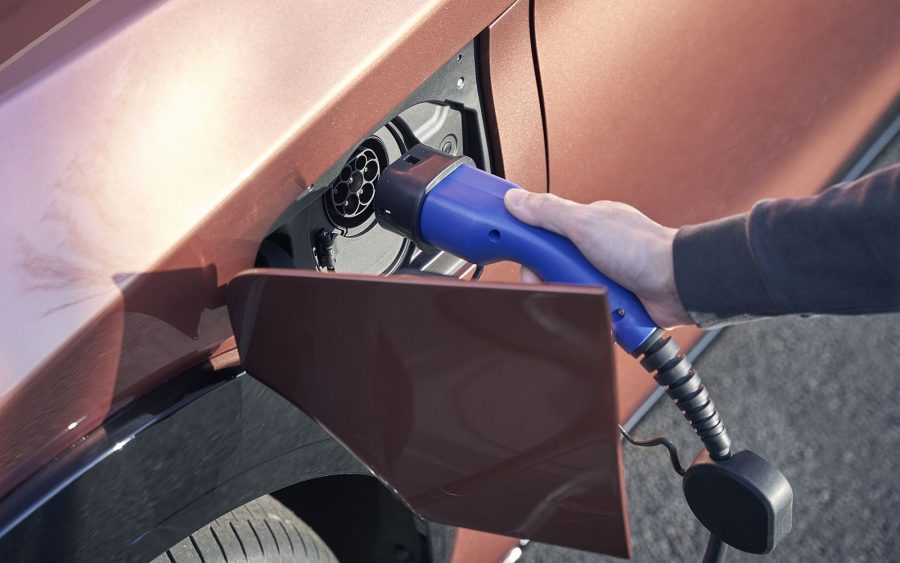
Electric vehicles: context
Lexus has pioneered the electrification of luxury vehicle powertrains since 2005. During that time we have continued to improve the technologies and components associated with electrification. And by expanding this concept from hybrid to plug-in hybrid and battery electric vehicles (BEVs or simply EVs) such as the Lexus RZ, we are shifting reliance from fossil-fuelled internal combustion engines to zero emission electric motors for our mobility.
This shift is now guaranteed in legislation, because from 2030 you will only be able to buy electrified new vehicles that offer a significant EV range. And then from 2035 it will not be possible to buy anything other than a zero emission new vehicle in the UK.
However the market is already ahead of the curve. Sales of pure BEVs are growing rapidly and it is evident from the ever-increasing volume of internet searches related to electric vehicles that many more are heading in that direction too.
Consumers have lots of questions about electric cars. Which suggests that many are either overwhelmed by the technology or unsure of how an electric vehicle can be conveniently integrated into their lives. So to help allay people’s concerns and ease their transition to zero emission mobility, we have put together a series of articles that address the following key areas of concern: charging, range and costs.
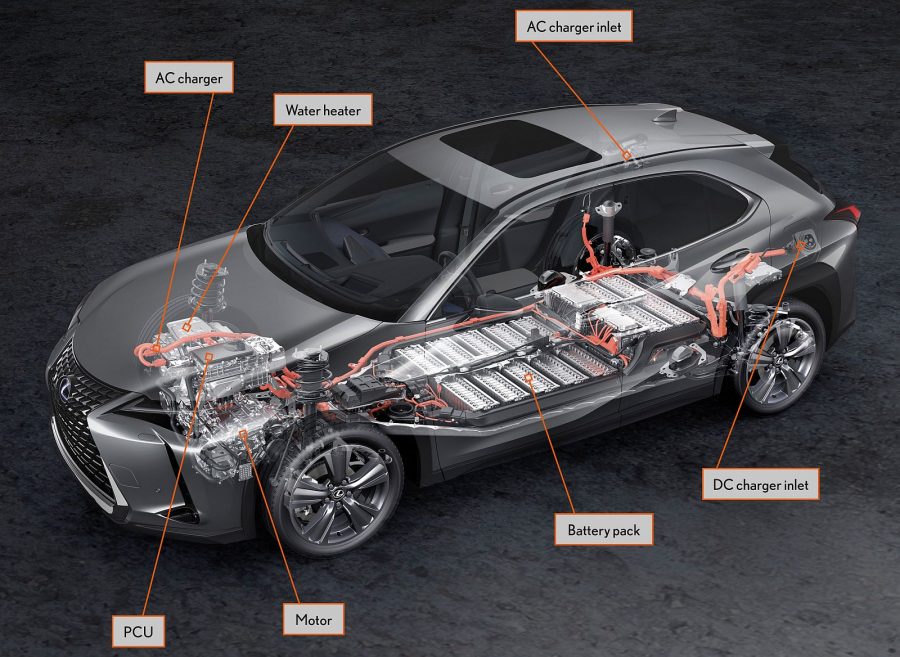
Lexus explains: electric vehicle charging
As the name suggests, a BEV is powered by electricity that is stored in an on-board battery pack. But that pack needs to receive its power from some form of electrical supply – a private charging point at home or a shared public charging point. This has prompted many to ask the following questions –
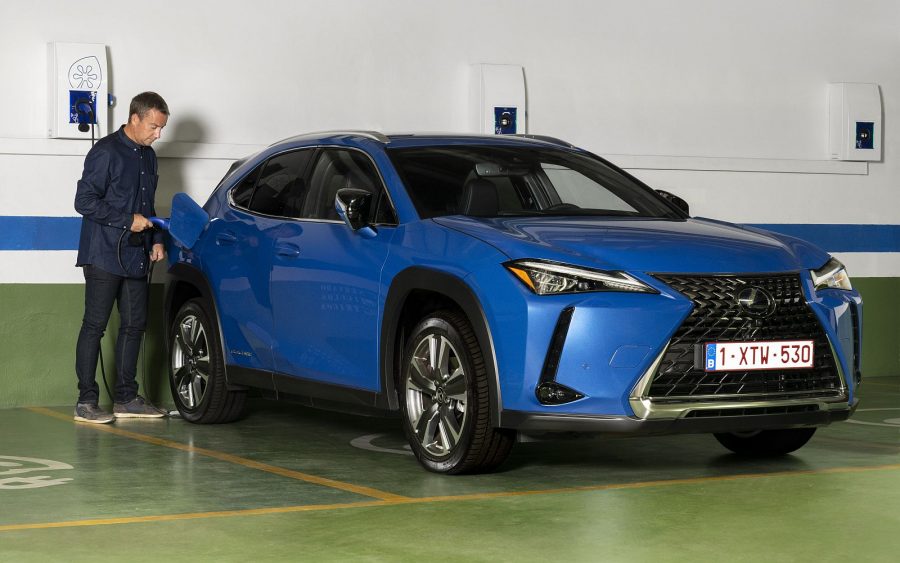
Question: How do I charge my car when on the go?
⦁ There are thousands of public charging options throughout the UK – almost 54,000 charging points across some 31,000 locations at the last count. It is an infrastructure that is growing at a rate of around 45% a year. By way of comparison, there are a little more than 8,300 traditional fuel stations in the UK
⦁ Some satellite navigation systems will be able to display a list of the nearest public charging stations and how far they are from your location. Alternatively, helpful smartphone apps such as Zap-Map will allow you to search for public charging points, plan longer journeys, pay on participating networks and share updates with fellow EV drivers
⦁ Lexus has also developed its own system for identifying and accessing more than 150,000 public charging points throughout Europe. Integrated into the Lexus Link+ app, the subscription-based Lexus Public Charging Network manages all of your EV information in one place
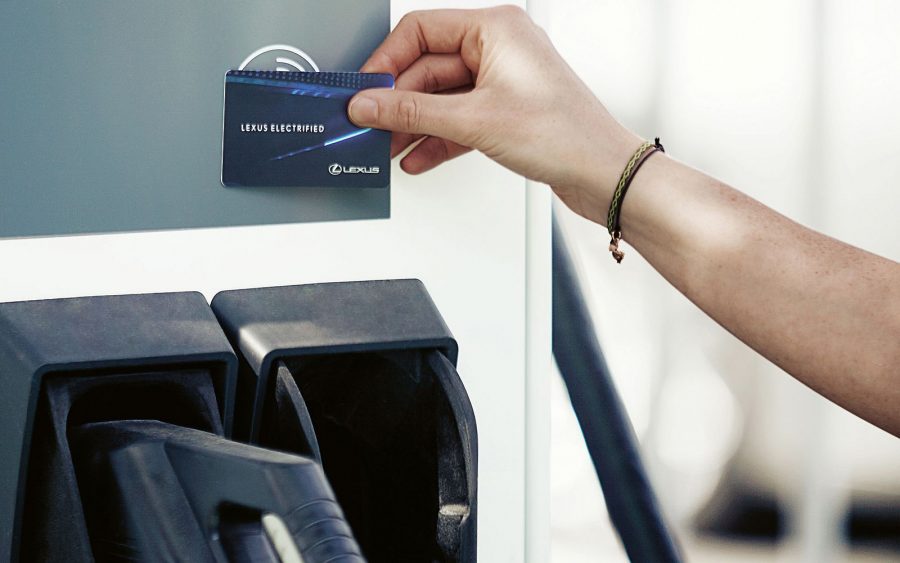
Question: Is it expensive to get a home charging system?
⦁ Lexus has partnered with British Gas to offer UK customers a complete home charger installation service. Prices begin at £939 and includes the recommended charger, installation and VAT
⦁ Homeowners living in flats and customers in rented accommodation (flats and single-use properties) can receive government funded financial support to install a home charging point. This grant will provide a 75% contribution to the cost, up to the value of £350
⦁ BEVs can also be charged using any domestic three-pin socket. Although this method has no additional set-up cost, it is the slowest means of charging
⦁ Real-life example: click this link to see Michelin-star chef Angela Hartnett explaining how she charges her Lexus UX 300e without a home charging point
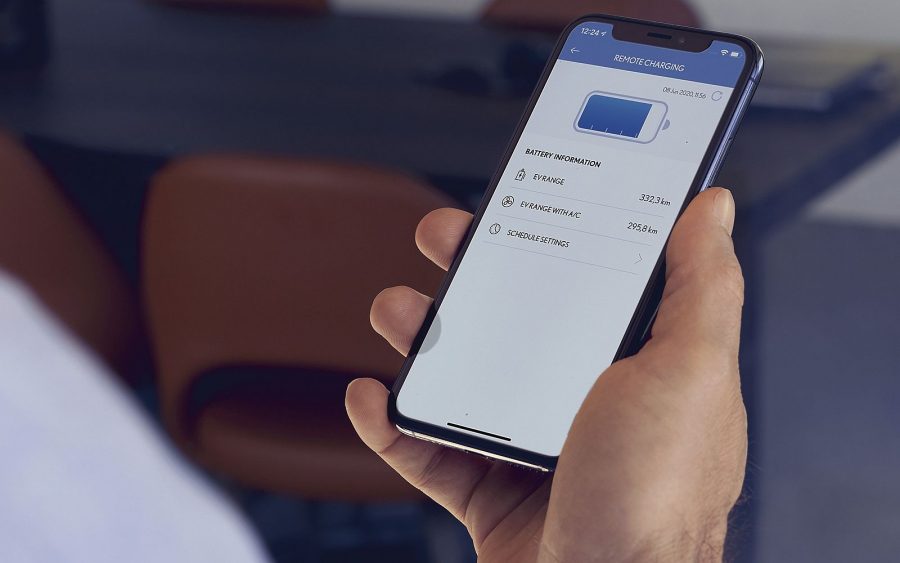
Question: Does it take long to charge an electric vehicle?
⦁ The length of time it takes to charge an electric vehicle primarily depends on three factors: the size of the battery pack, the power of the electrical supply and the capability of the vehicle’s on-board charger. Other factors such as ambient temperatures and battery temperature will also affect charging times
⦁ Charging devices generally fall into one of four speed categories: slow (3-6kW), fast (7-22kW), rapid (25-99kW) and ultra-rapid (100+kW). The Lexus UX 300e can handle charge speeds from slow to rapid, while the forthcoming Lexus RZ will be able to accommodate ultra-rapid charging speeds up to 150kW
⦁ For reference, the Lexus UX 300e has a 54.3kW battery pack. A 50kW rapid DC charger will take the battery from 10-80% charge in as little as 46 minutes, whereas a 6.6kW AC home charger will fully charge the battery from empty in as little as eight hours 15 minutes. Charging from empty to full using a 13A domestic socket with a 2.2kW charging rate will take around 25 hours
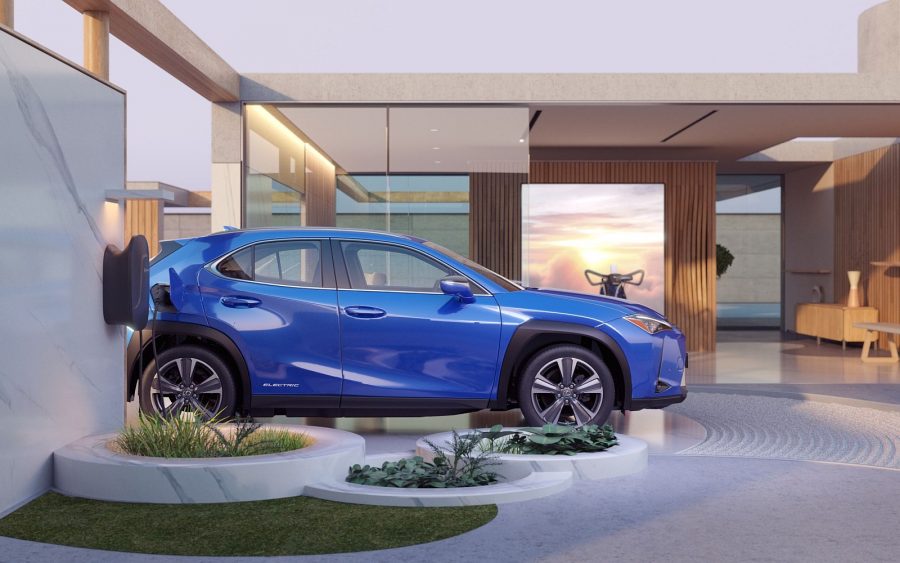
Electric vehicle charging: conclusion
Every vehicle needs some kind of fuelling either before or during a journey; it’s just that an electric vehicle requires a different sort of replenishment. The bonus is that electric vehicles can be charged at home or on the move, while the list of public charging locations already far outweighs the number of traditional fuel stations. And if the length of your journey means that it is necessary to top-up your battery along the way, the possibility of ultra-rapid charging means that those breaks need not be very long.
Learn more: Lexus explains – electric vehicle range
Learn more: Lexus explains – electric vehicle costs
Learn more: Lexus explains – electric vehicle safety
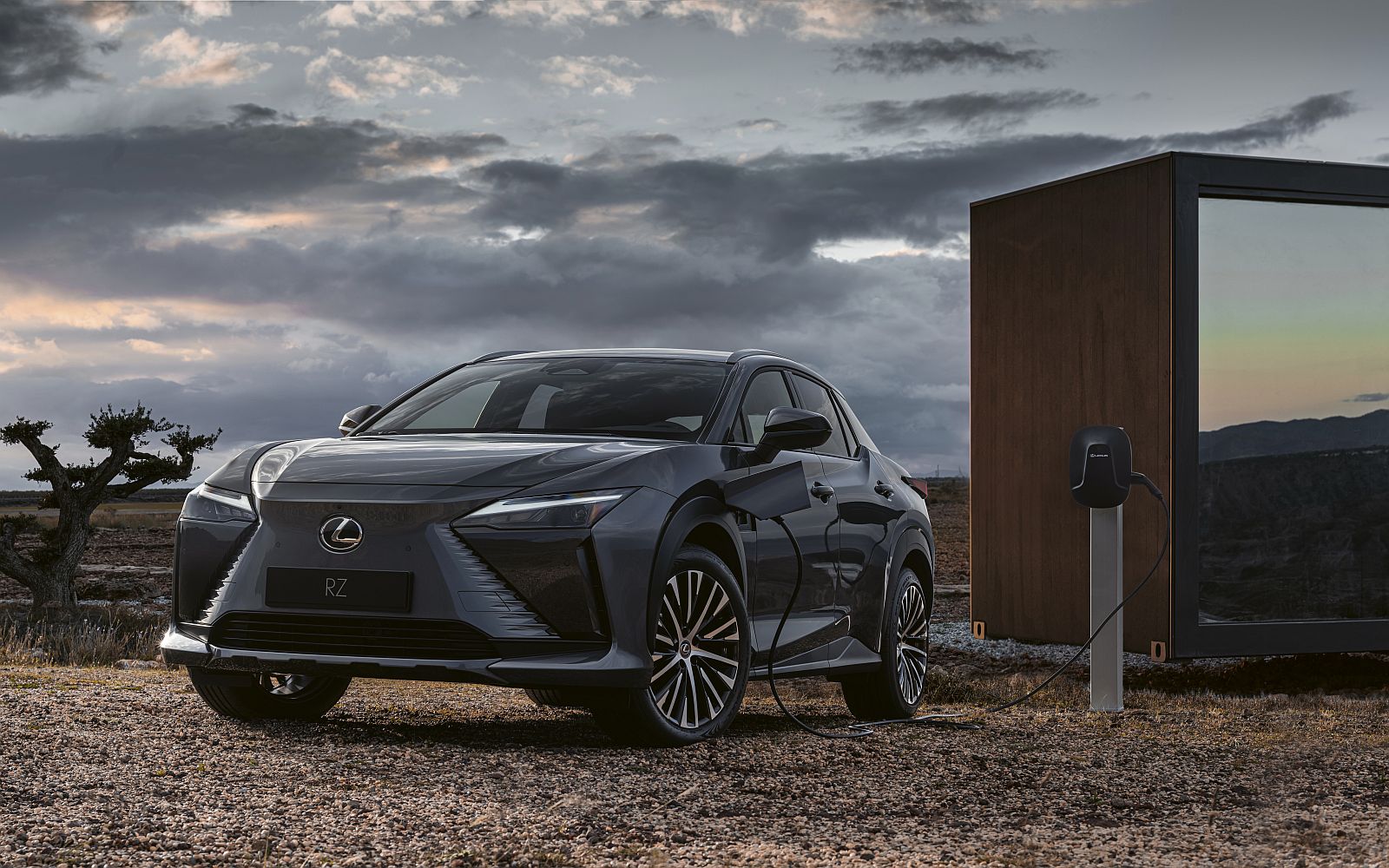
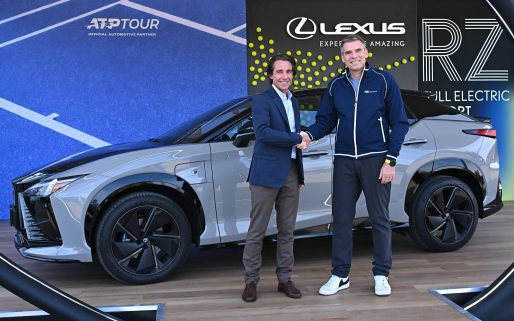
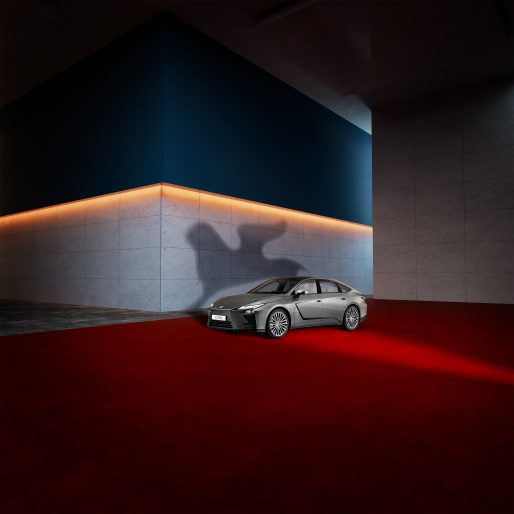
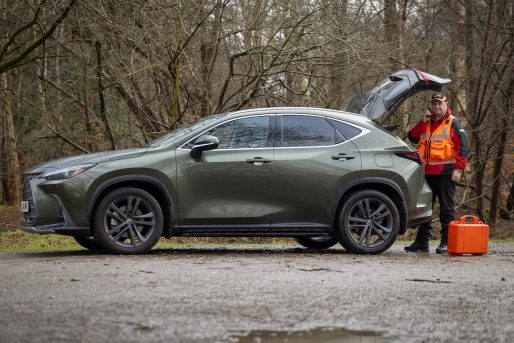
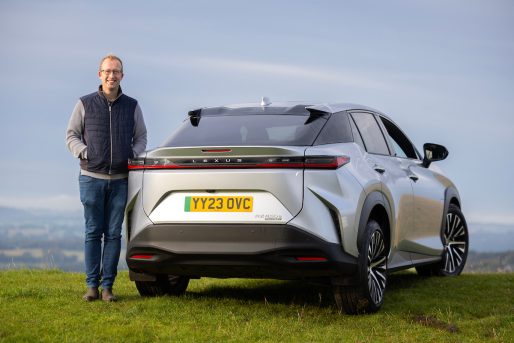
What is the lowest amperage you can charge an RZ on?
Hello Andrew, thanks for your comment.
Our Technical Team have advised that the lowest amperage which the hybrid battery can be charged at is 8 amps.
Thanks.
I’m wanting to charge mine when the sun is shining, using my solar panels, and stop it when the weather turns bad. I can only see the option to set the remote timing for 1 start and one end charging. It would be much better if it could be set for multiple days.
There is a option to start charging… but nothing to stop it without going through the pain of adjusting the event settings again. Why isn’t there a simple ‘stop charging’ option?
Hello Diane, thanks for getting in touch.
All instructions concerning charging of vehicles can be found in your Owner’s Manual. This can be found online here: https://www.lexus.co.uk/owners/about-my-lexus/manuals
Should you need further assistance, your local Lexus Centre are best placed to assist you with your queries. Your nearest centre can be located here: https://www.lexus.co.uk/forms/find-a-centre
Hope this helps.
Thanks.
Will the car not start if it isn’t charged for some time? How long would that be?
Hello Peter, thanks for your comment.
Electric vehicles can be charged from a private charging point at home or a shared public charging point. The required frequency of charging depends on the vehicle’s range.
You can find more information on this here:
https://mag.lexus.co.uk/electric-vehicle-range-lexus-explains/
Also, each vehicle will have detailed information on charging in the Owner’s Manual. These can be viewed online here:
https://www.lexus.co.uk/owners/about-my-lexus/manuals
Please let us know if you need any more information.
Thanks.
You say, By way of comparison, there are a little more than 8,300 traditional fuel stations in the UK. What you’ve forgot to mention that each fuel station has many fuel pumps. Many many more actually to use than electric charging points.
Self charging hybrids are the way forward, not fully electric. The damage to our earth from mining the battery components is another point you may like to mention.
Hello Ronald, thanks or your comment.
We value your feedback greatly. This will be passed on to the relevant teams.
Thanks.
When will Electric vehicles all have a capability range off 500 miles minimum and be ablec to be fully charged within 15 mins max. Until thrn our family are simply not interested in changing to electricification. Also this ange needs to be unaffected by cold weather.
Local council (Fife) won’t let me install a charging point on my private parking area as there is a public right of way between my house and my (owned) parking plot. They do not have “guidance” as to how to allow it.
I could have a new supply installed in the plot, cost £4-5K.
Not much incentive really.
Why are all of the new EV/BEV vehicles SUVs ? Some of us prefer saloons and actively loathe this design of car and have no need for them.
Hello Kevin, thanks for your comment.
We appreciate your feedback greatly. This will be passed onto the relevant teams.
Thanks.
You compare the 32,000 charging points across the UK with the 8,300 fuel stations conveniently ignoring the fact that each of these 8,300 fuel stations do not have a single pump but have a number of pumps ranging from 3/4 up to 20 or more per service station. So adding up all the pumps across the UK against the 32,000 electrical outlets shows there are many more pumps than electrical outlets. Another example of anti fuel disinformation worthy of passing the BBC fact checkers.
I live in Wembley in a 1937 house with the electric meter under the stairs. The connector would need to go through the kitchen and utility room to connect to the wall on the patio with my car standing on a drive at the bottom of my garden about 15 metres away. I wanted to buy an RZ450e but couldn’t get information from a Lexus dealer other than 2 to 3 months wait for installation in London. British Gas is even worse with no information about contacting them for an estimate for installation.
Also no one I spoke to seem to know how much VED tax a new RZ450e would cost or wether a 2023 or 2024 model would have to pay the “luxury“ tax
In the end I was so frustrated I bought a self charging hybrid
PS I’m not the Adrian of 8th October 2023 4.17pm
RZ450e: Other than pulling out the charging cable is there a way to stop charging using the link+ app? I can’t see the option.
Thanks
Morning Mark.
You can remotely check the charge level and range of your Lexus RZ 450e via the Lexus Link+ App. When recharging at home, it’s also possible to see when your car will be fully charged or set a timer to ensure charging is completed before your chosen departure time.
For further guidance, view our ‘how to’ videos here: https://www.lexus.co.uk/owners/about-my-lexus/lexus-link-plus-app Alternatively, your local Lexus Centre will be happy to show you.
Thank you.